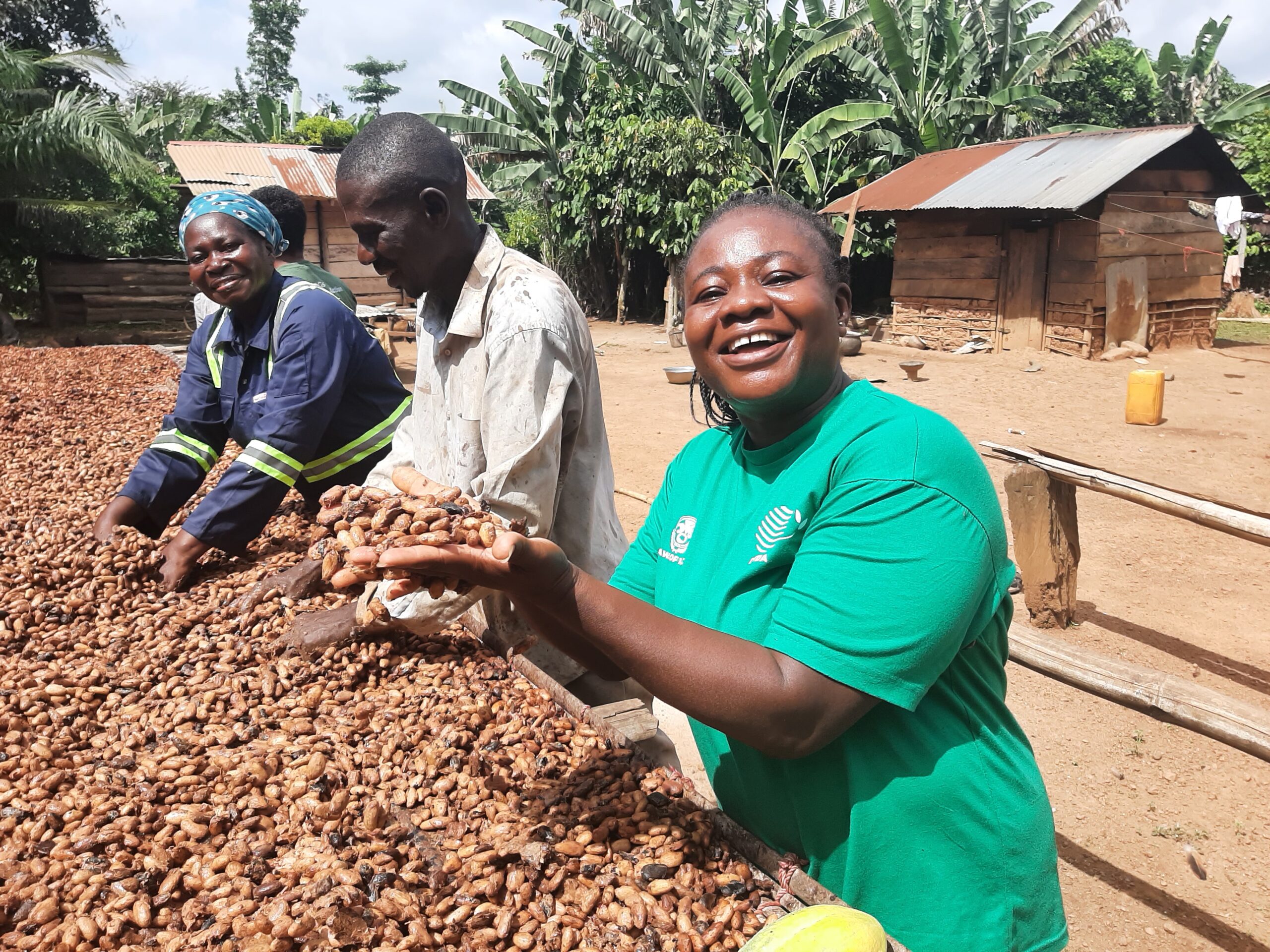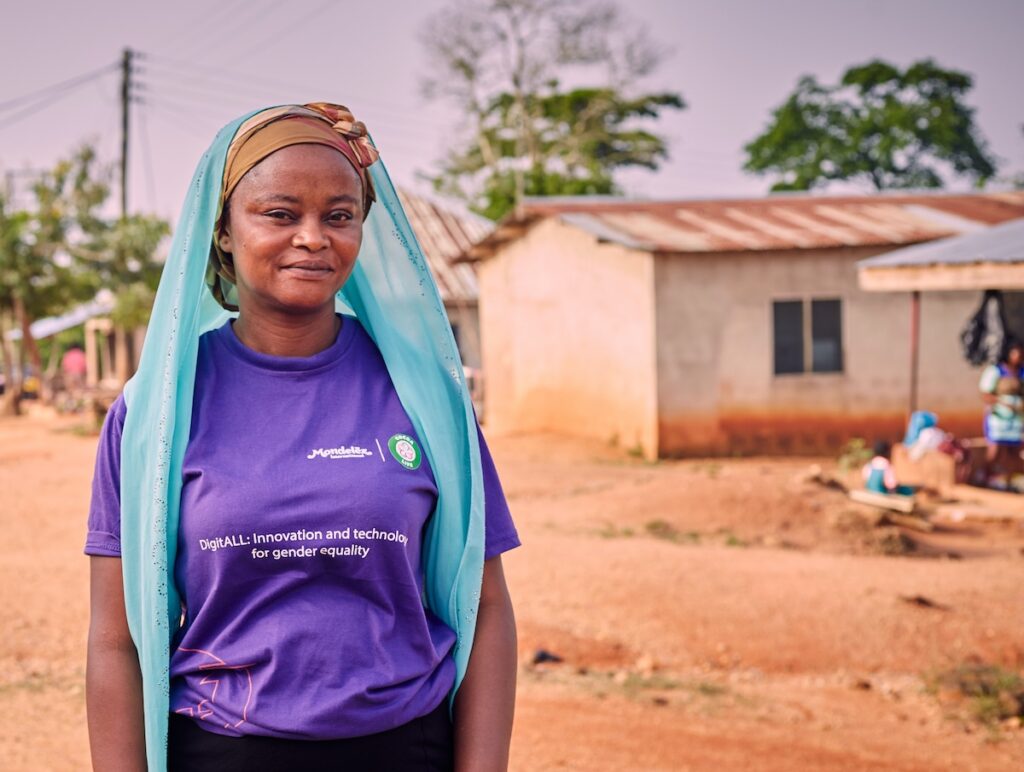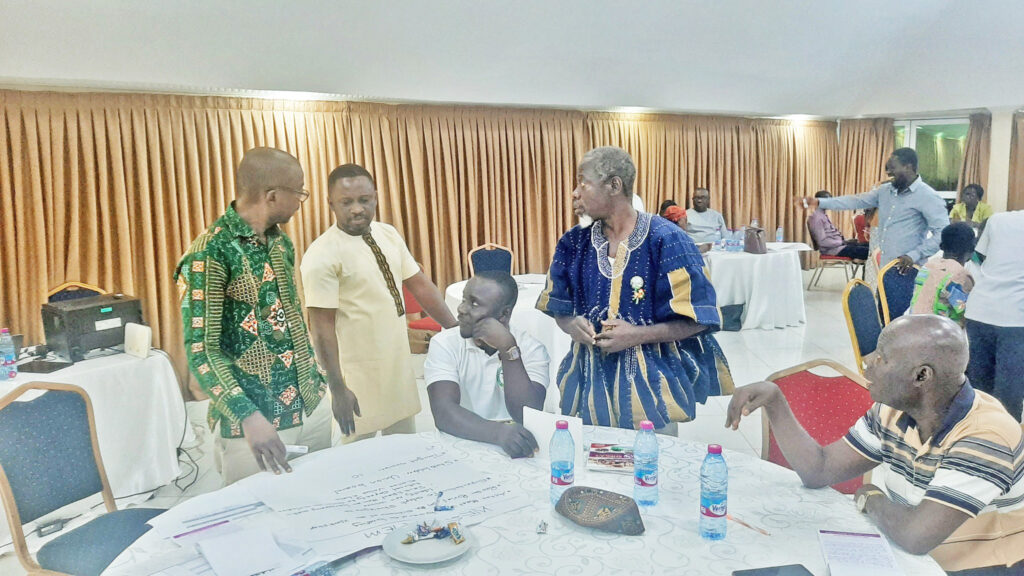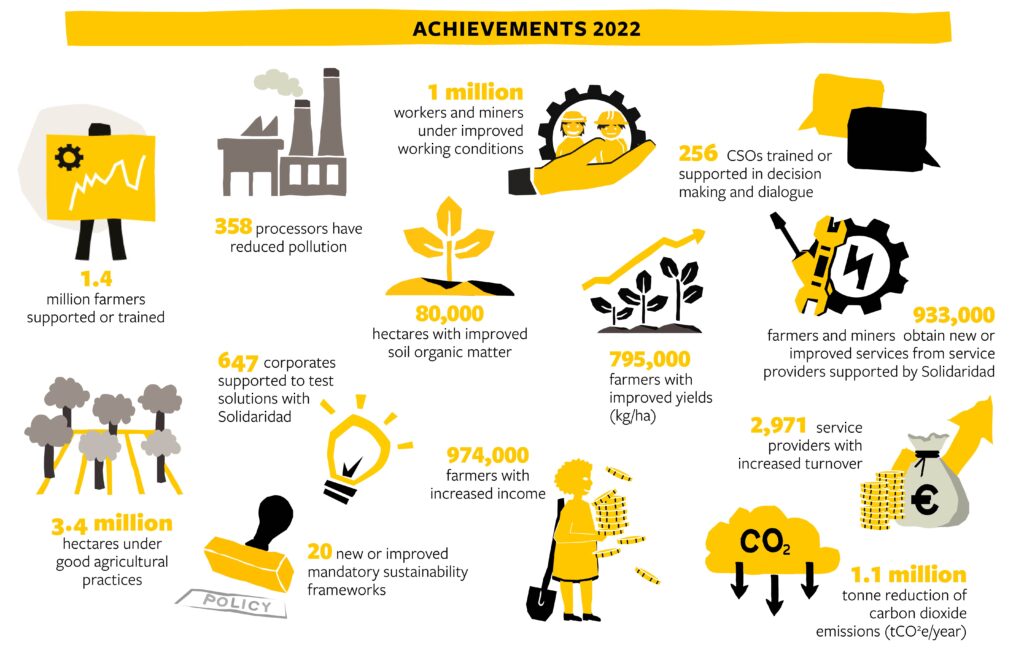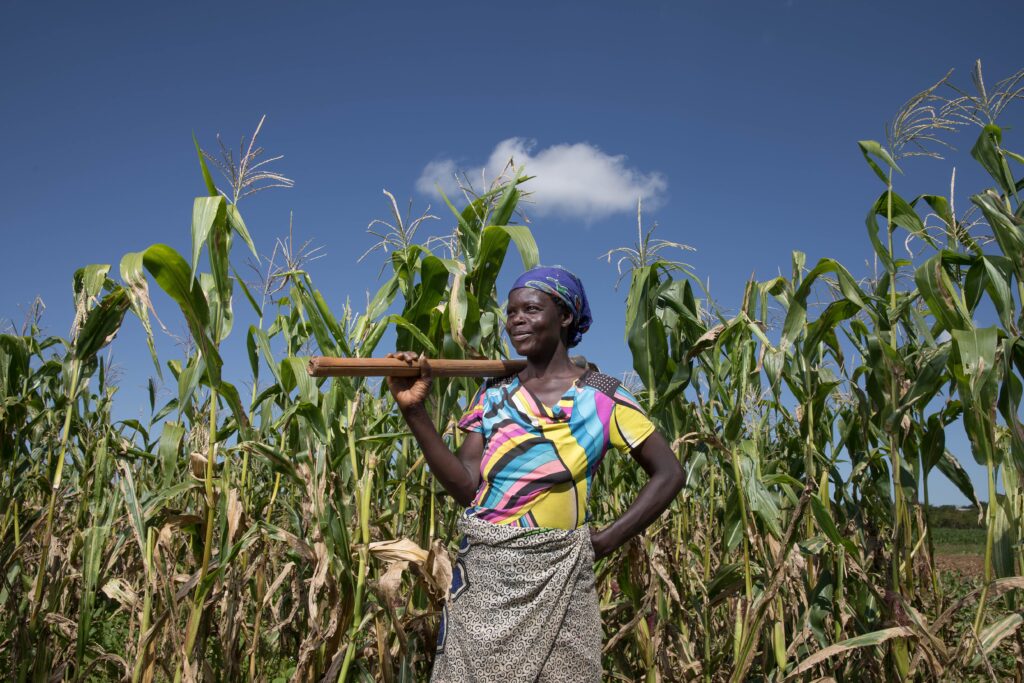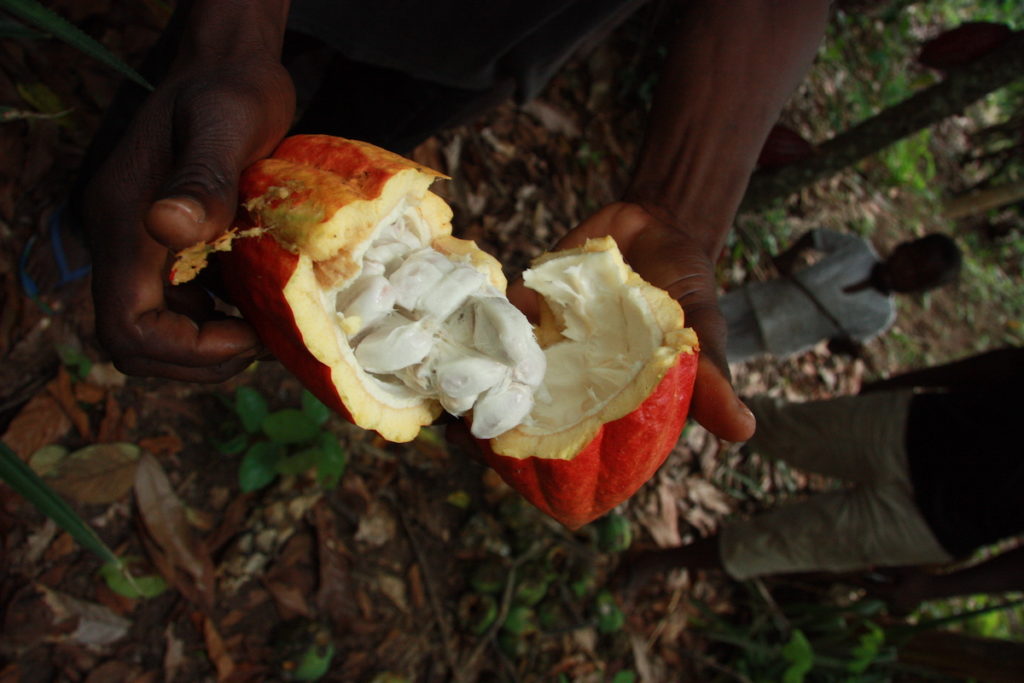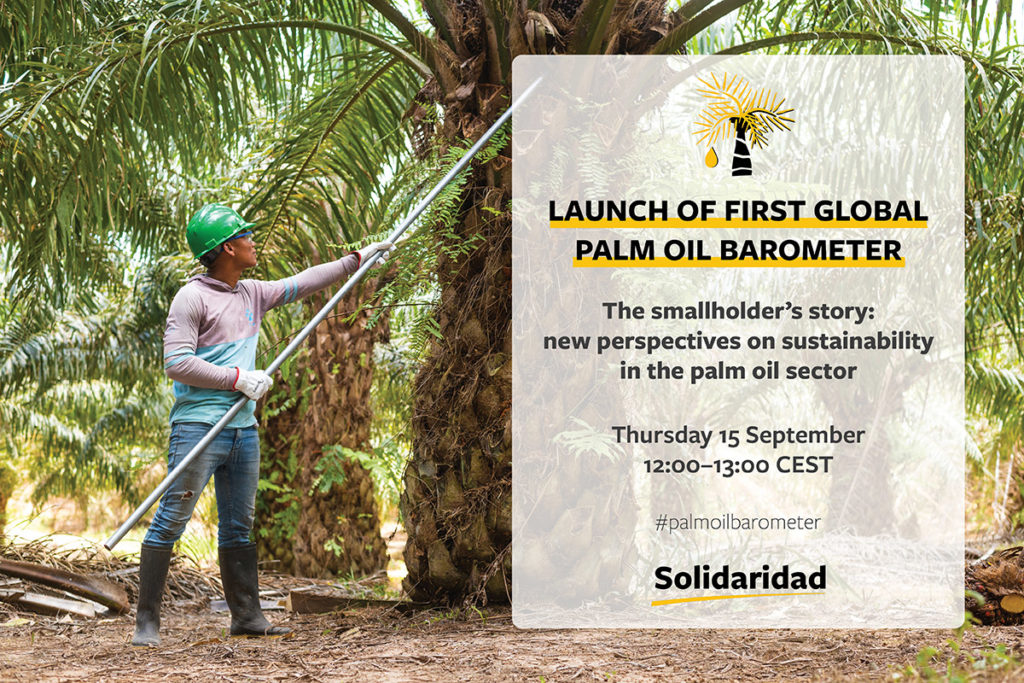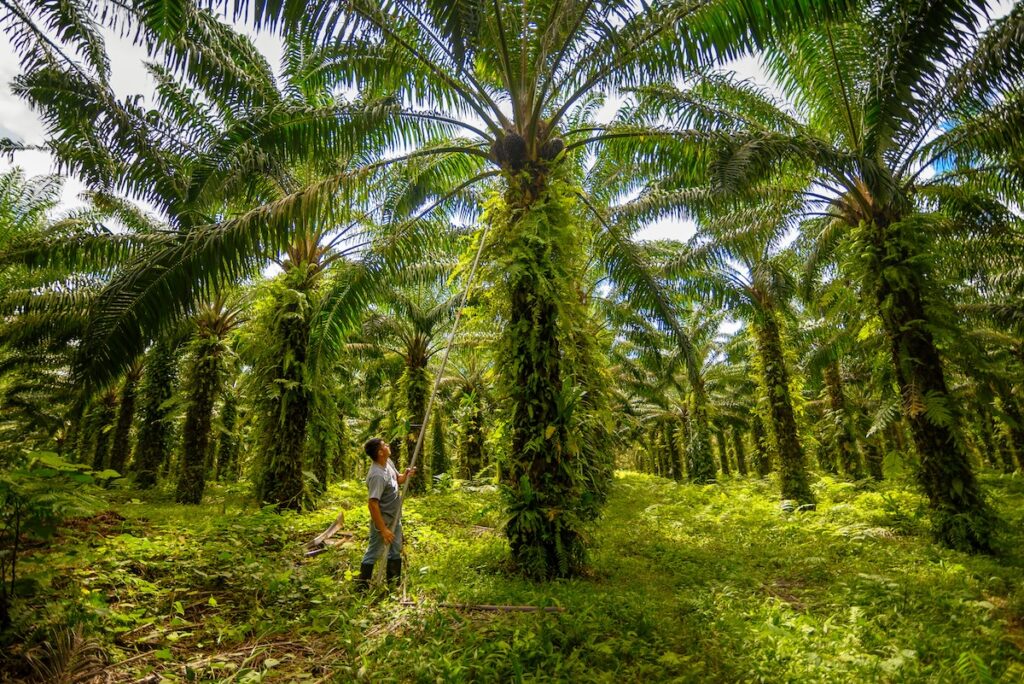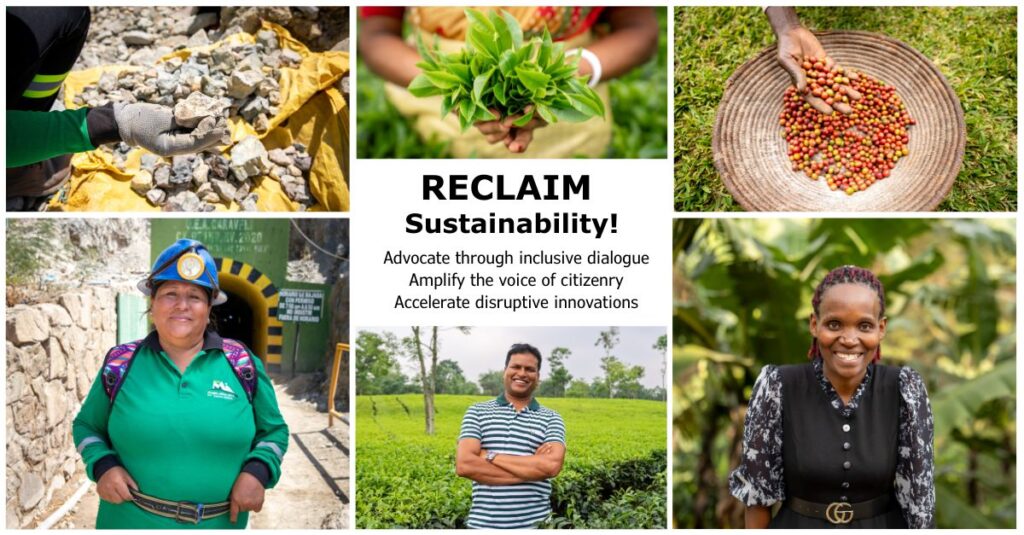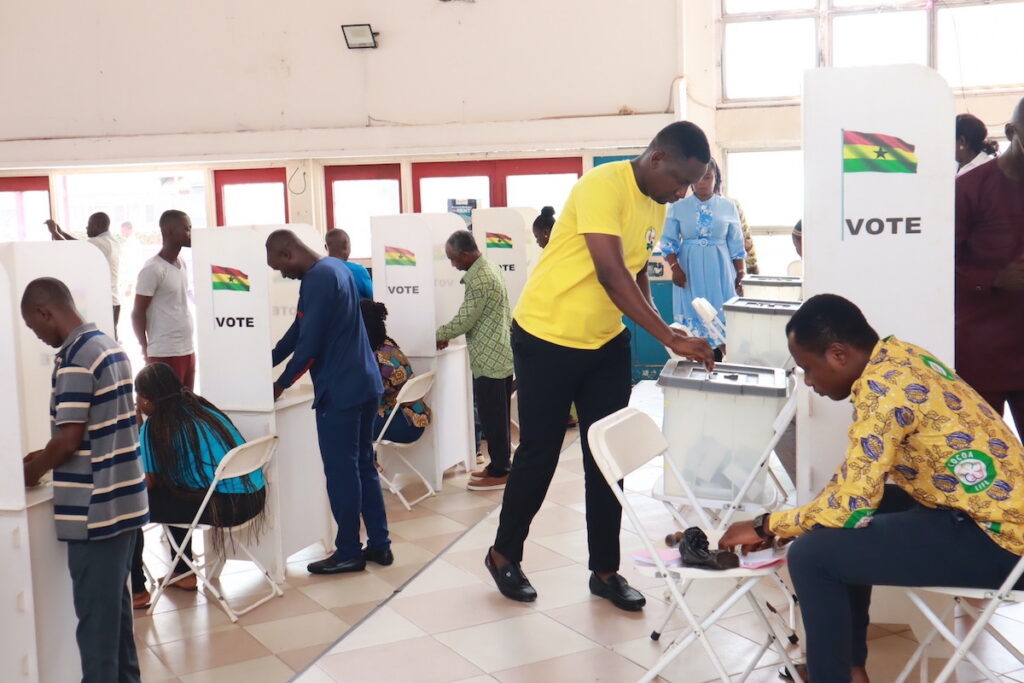Photo above: Faustina Aberor (right). Photo credits: Marc Broere, Vice Versa
This story, an interview by Marc Broere and Eunice Mwaura, was originally published in the Vice Versa Power of Voices magazine special (June 2024).
Faustina on establishing a women’s cocoa cooperative
When you are with a group of cocoa farmers, one thing immediately stands out: the men do the talking and the women are silent, not even able to share ideas. This is culturally determined: in some areas of Ghana, women don’t talk when men are around, so if you want to help women here to do their work even better, you have to bring them together in a separate cooperative – and this is what we did.
Moreover, we realized that women do most of the work, from planting to harvesting. But when it comes to selling the beans and negotiating, the woman disappears, and you don’t see her again. That had to change. Therefore, we encouraged women to officially register as co-owners of their family farms.
A better livelihood for the new generation of farmers
My parents, like so many in the community, were also cocoa farmers; they struggled and could barely keep their heads above water. That, too, contributed to my vision that it’s necessary to make sure that farmers are able to deliver their goods and do business in a better way, so things can change from the way our parents used to do this.
So now we are helping farmers to realize that they are entrepreneurs and running a business, and that they should no longer fiddle around. If your parents used to get one bag of beans from a hectare of cocoa trees, I don’t expect you to get the same.
Now we support farmers through a business school and teach them how to increase production. We guide them through a lot of educational processes so that they don’t end up like their parents. If their parents, for instance, got one bag per hectare, we expect them to get 10 to 12.
Many of our members actually achieve that. The introduction of a few interventions like pruning and hand pollination make a huge difference. We used to rely solely on bees for pollination, but with human intervention, you can make great strides.
There are a couple of conditions to become a member of our cooperative. First, you have to be a farmer, a cocoa farmer – and a woman, of course. You also have to have the motivation to work as a farmer. You must be open to our interventions, and feel the passion to make a difference.
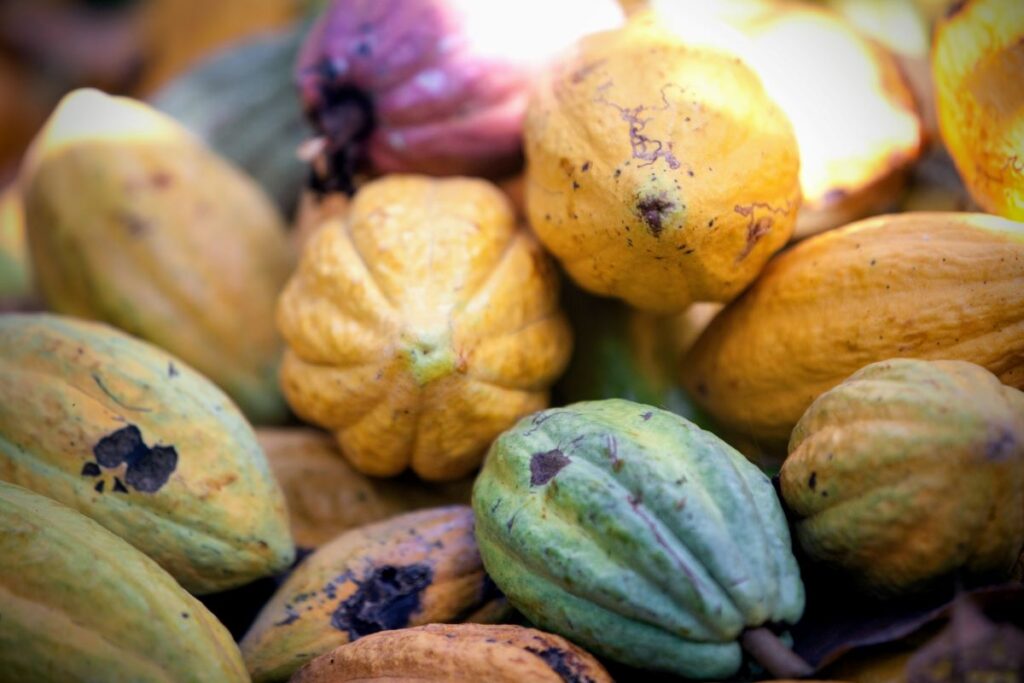
Richer than the government
We want you to have a different life than that of your parents and grandparents and, above all, we don’t want to spread the mentality that cocoa farmers are poor. I even tell new members that they are actually very rich. If a farmer’s wife still says she is poor, I write and calculate with her, to show her that she is a rich woman.
‘How many hectares of land do you have?’ I ask her, and go on to tell her that she is supposed to have 435 trees on one hectare, with one tree giving an average of 50 pods. So I calculate how many bags of cocoa she should get for that one, two or five hectares, and multiply that by the price per bag. Then I tell them that they are richer than the Ghanaian government, and the women usually have a good laugh.
‘And meanwhile you tell me you have no money,’ I then admonish them. It’s a matter of turning your mindset around. I believe in what it says in Romans 12, in the Bible: you only really change inwardly through a complete change of mind. Cocoa farmers in Ghana are rich but still see themselves as poor. They are rich, but refuse to help themselves to actually become rich.
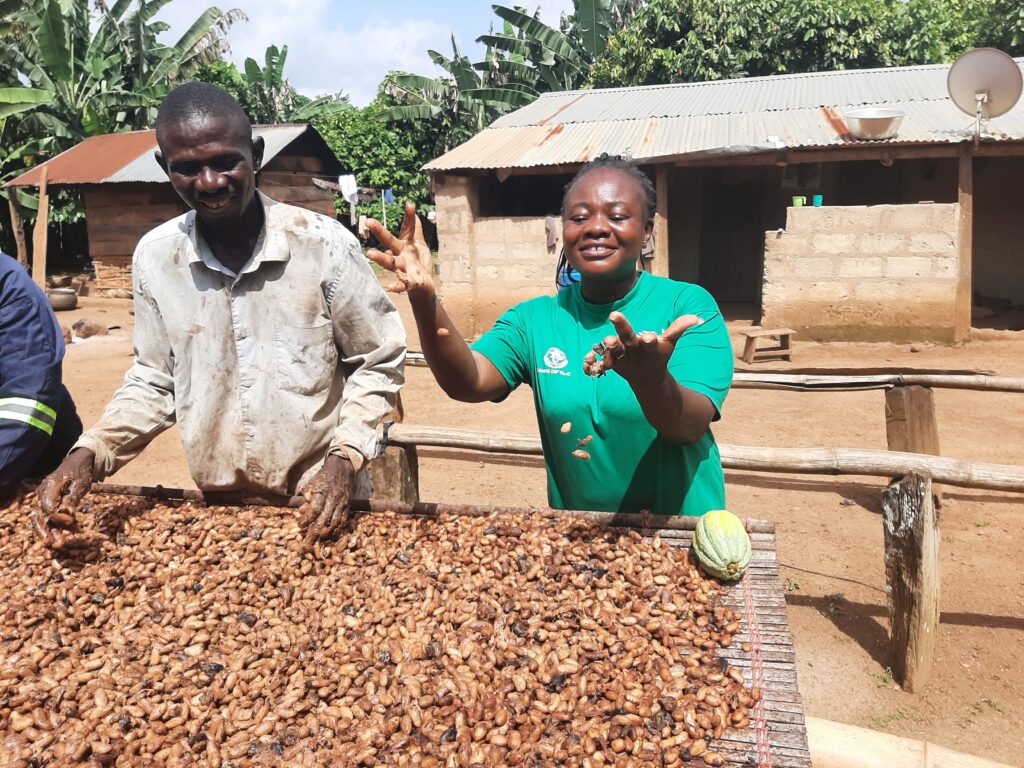
Tackling land rights with a women’s cooperative
When we set up a special cooperative for women, it was of course exciting to see how the men would react, but it wasn’t too bad. Most men find that also has its advantages – I don’t think there is anyone, man or woman, who wants their children to go to bed hungry.
We didn’t present it as something that could undermine men’s authority, or as something that would compete with male cocoa farmers. No, we said we were going to do something to enable women to help their husbands and the household. During the meetings with men and women, I also always explain that it is not a competition.
One issue we are working on specifically within the RECLAIM Sustainability! programme is that of land rights. Although families work together as cocoa farmers, the land is usually in the husband’s name – and if he dies, the land does not formally go to his wife if she is not an official co-owner of it.
The family of the deceased husband then often takes over everything, and the wife and her children are left empty-handed. This is, unfortunately, very common in Ghana and elsewhere in Africa. So, we encourage the women to register, and we convince the men to support them in doing so. Fortunately, most are open to it and increasingly more women are getting their own land titles, and then they own both the farm and the land together.
Motivating the youth to become cocoa farmers
I like seeing young people giving serious consideration to becoming cocoa farmers again. For a very long time, they didn’t. They thought it was something for losers. They imagined it to be like the life of their parents, who didn’t even have a bicycle, let alone a car.
‘Why should I waste my time farming too,’ they thought. ‘No, let me go to the city, where I will have a better life.’
Now you see that mentality changing, and the Ghana Cocoa Board is also doing a lot of activities in that area. For instance, it has instituted an award for the most promising young cocoa farmer and the most enterprising woman cocoa farmer.
Farmers are now diversifying with cocoa and discovering its versatility as a product, and I heartily encourage that.
Apart from chocolate, which we all enjoy, there are so many other things you can make from cocoa: spirits, fertilizer, and soap. There is a group of our members working on turning it into spreads – increasingly, people are seeing more possibilities.
I enjoy this work every day. It’s not an office job, but I’m out in the fresh air so much, and the meetings with women farmers are very inspiring. I also have my own piece of land, I am a cocoa farmer myself, and that is something wonderful. For me, this is not a job, but pure passion: I just love what I do.”
Power of Voices special
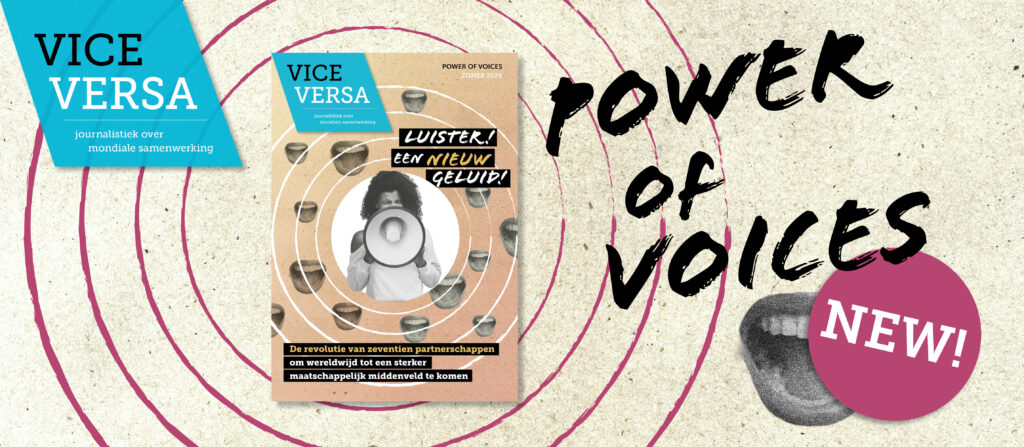
Faustina’s story was originally published in Dutch in Vice Versa’s Power of Voices magazine special, featuring the work of various partnerships under Power of Voices, such as RECLAIM Sustainability!
Interested to read more stories from RECLAIM Sustainability! featuring in the Power of Voices special? Stay tuned!

